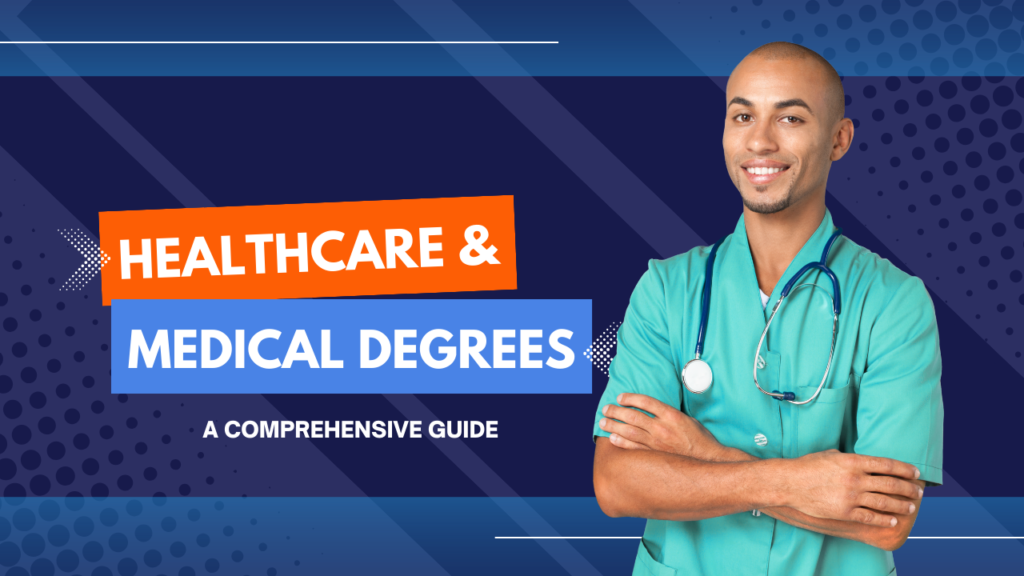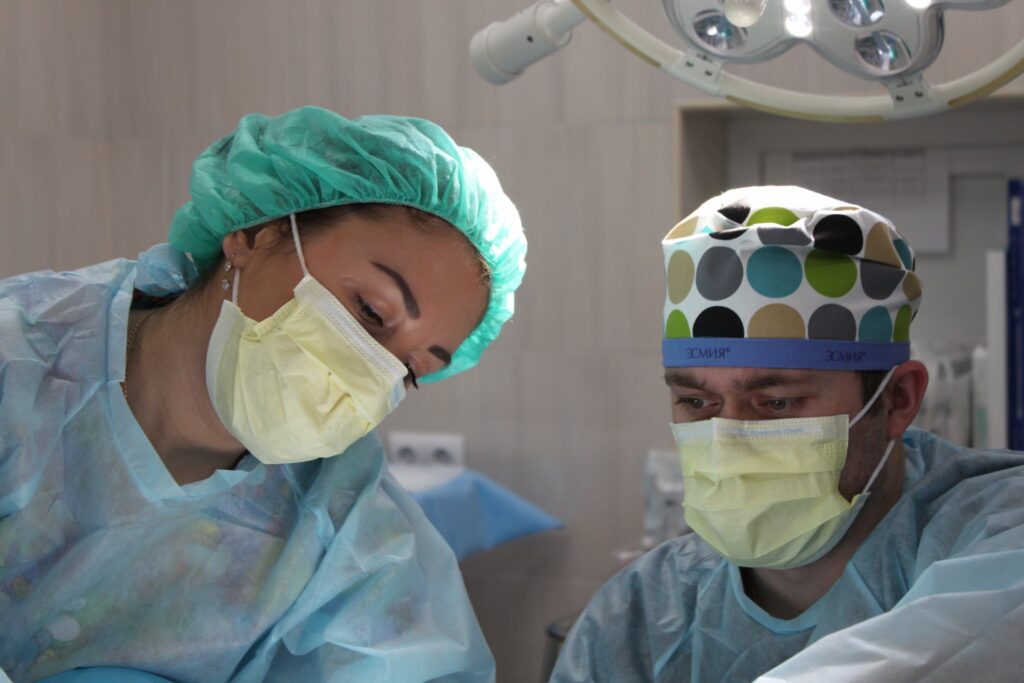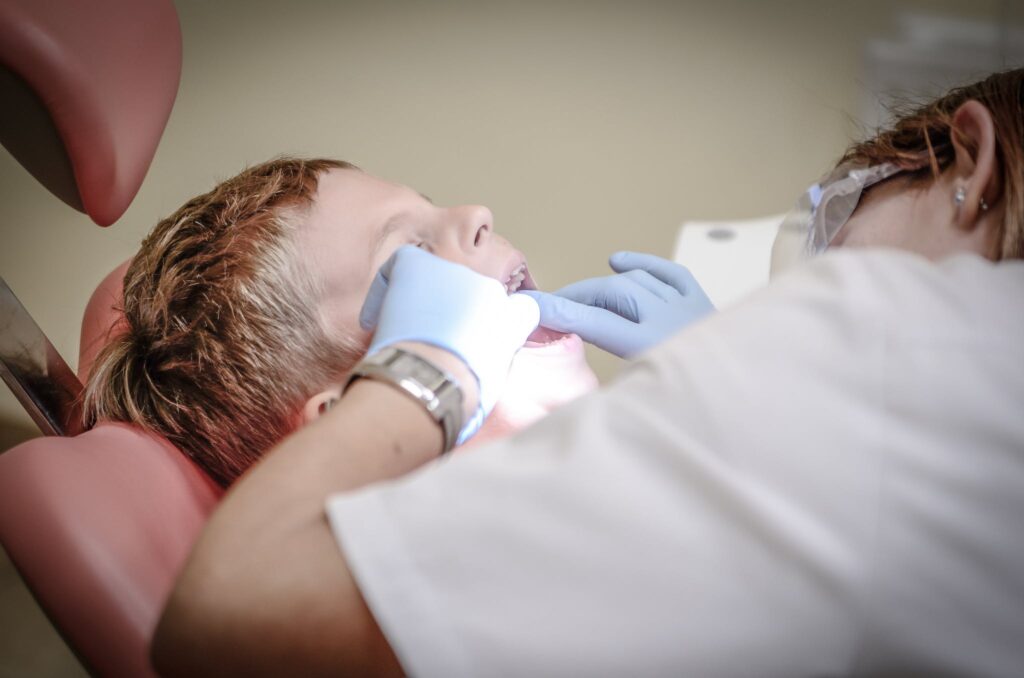Healthcare and Medical Degrees to Choose From
Embarking on a journey in the field of healthcare and medicine is akin to stepping into a realm where compassion meets science, where the pursuit of knowledge intertwines with the commitment to alleviate suffering. Healthcare and medical degrees are one of the best science courses that pave the way for individuals to become pillars of support, equipped with the skills and knowledge necessary to make a significant impact on people’s lives.
In this comprehensive exploration, we will dig deeper into the various aspects of healthcare and medical degrees, from the diverse medical science majors available to the potential career paths, ultimately addressing the question before going to medical school: Are medical and healthcare degrees worth the investment?
What is a Healthcare or Medical Degree?

A healthcare or medical degree serves as a passport to a world dedicated to healing and caring for others. It is a structured educational pathway that imparts both theoretical and practical knowledge essential for navigating the complexities of the medical world.
These degrees equip individuals with the skills needed to diagnose, treat, and prevent illnesses, as well as to promote overall well-being. Whether one aspires to be a nurse, doctor, therapist, or administrator, a healthcare or medical degree is the foundational key to unlocking diverse career opportunities within the expansive realm of healthcare.
Top 10 Healthcare and Medical Majors
Before you attend medical school, here’s a compilation of the top 10 majors that pave the way for rewarding careers in the ever-evolving field of medicine.
Nursing Degree
By pursuing a nursing career, you stand as the heartbeat of healthcare, seamlessly blending scientific knowledge with empathetic care. Nurses are the frontline advocates for patients, orchestrating a symphony of comfort and well-being.
Having a nursing career means administering medications to implementing intricate medical plans. The role of a registered nurse is pivotal in ensuring comprehensive and compassionate patient care.

Medicine Degree
Medical degrees encompass a spectrum of fields, from internal medicine to surgery and pediatrics, crafting individuals into physicians equipped to diagnose and treat a myriad of medical conditions.
These professionals stand at the forefront of healthcare, combining analytical prowess with a commitment to healing and making critical decisions that impact lives.

Pharmacy Degree
Pharmacists serve as gatekeepers of medication, wielding expertise in dispensing prescriptions and advising on potential drug interactions. Their role extends beyond the pharmacy counter, ensuring patients receive tailored prescriptions for their unique health needs.
Pharmacists play a vital part in the healthcare ecosystem, ensuring the safe and effective use of medications.
Physical Therapy Degree
Physical therapists are architects of mobility, focusing on enhancing movement and managing pain through targeted exercises and rehabilitation techniques.
These professionals play a crucial role in restoring functionality advising patients through personalized plans that promote recovery and improve overall quality of life.
Public Health Degree
Public health majors transcend individual care, addressing the broader aspects of community well-being. Emphasizing preventive measures, health education, and policy development, public health professionals work tirelessly to create healthier societies, tackling issues from infectious diseases to lifestyle-related health challenges.
Dentistry Degree
Dentists are guardians of oral health, offering essential services ranging from routine check-ups to intricate dental anatomy and procedures.
Beyond ensuring healthy smiles, dentists play a vital role in preventing and treating oral diseases, contributing to the overall well-being of individuals and communities.

Health Administration Degree
Health administrators are the backbone of healthcare facilities, ensuring seamless operation through effective management of finances, policies, and personnel.
Their strategic oversight optimizes patient care, allowing healthcare professionals to focus on their primary mission: delivering quality medical services.
Occupational Therapy Degree
Occupational therapists are architects of independence, guiding individuals in regaining control over their lives through tailored interventions.
Adapting environments to enhance daily living, these professionals empower individuals to overcome challenges, promoting autonomy and improved quality of life.
Radiology Degree
Professionals in radiology harness the power of imaging technologies, such as X-rays and MRIs, to diagnose and monitor various medical conditions using different kinds of medical devices.
Their precision and expertise contribute significantly to the diagnostic landscape, guiding healthcare teams in formulating accurate and effective treatment plans. They also contribute to the research and development of some of the latest radiology technology.
Medical Laboratory Science Degree
Laboratory scientists are unsung heroes in healthcare, conducting tests and analyses that form the backbone of disease diagnosis and treatment.
From blood tests to complex experiments, their meticulous work provides essential insights, guiding physicians in delivering personalized and effective medical care.

2-Year Healthcare Degrees
Dive into the realm of healthcare with accessible 2-year degrees, providing a quicker entry point into the medical field. Explore the diverse options available for those seeking a faster route to a fulfilling healthcare career.
Dental Assisting
Dental assisting programs equip individuals with the skills to support dentists during procedures, manage patients, and handle dental instruments. Graduates become integral members of dental teams, ensuring efficient and smooth operations within dental practices.
Healthcare Administration
Healthcare administration degrees focus on the management and organizational aspects of healthcare facilities. Graduates are prepared for roles such as hospital administrators or healthcare managers, overseeing day-to-day operations, optimizing resources, and ensuring the delivery of high-quality health service.
Medical Assisting
Medical assisting programs train individuals to perform administrative and clinical tasks in healthcare settings. Graduates can assist physicians with examinations, manage patient records, and handle front-office responsibilities, playing a crucial role in the efficient functioning of medical practices.
Radiologic Technology
Radiologic technology programs prepare students to operate imaging equipment, such as X-rays and MRIs, for diagnostic purposes. Graduates become skilled in capturing detailed images that aid physicians in diagnosing and treating various medical conditions.
Practical Nursing
Practical nursing programs provide comprehensive training for individuals seeking a career as licensed practical nurses (LPNs). Graduates administer medications, monitor patient health, and collaborate with healthcare teams to deliver essential nursing care.
Medical Billing and Coding
Medical billing and coding programs focus on the essential role of managing healthcare records, medical coding, coding diagnoses, and processing insurance claims. Graduates play a vital part in ensuring accurate billing and reimbursement processes within healthcare organizations.
Surgical Technology
Surgical technology programs train individuals to assist surgeons in the operating room. Graduates become experts in preparing surgical instruments, maintaining a sterile environment, and providing crucial support during surgical procedures.
Health Information Management
Health information management programs emphasize the organization and security of healthcare data. Graduates are equipped to manage electronic health records, ensure data accuracy, and contribute to the efficient flow of health information within healthcare systems.
Health and Human Services
Health and human services programs prepare individuals for roles in community health, social work, and counseling. Graduates work in diverse settings, like being a community health workers where they address the holistic well-being of individuals and communities through various support services.
Physical Therapist Assistant (PTA)
Physical therapist assistant programs train individuals to assist physical therapists in implementing treatment plans. Graduates play a hands-on role in helping patients regain mobility, manage pain, and achieve their physical therapy goals.
Associate in Nursing
Associate in Nursing programs offer a comprehensive foundation for individuals aspiring to become registered nurses (RNs). Graduates are prepared to provide direct patient care, administer medications, and collaborate with healthcare teams to promote optimal health outcomes.

4-Year Medical Degrees that Pay Well
When it comes to 4-year medical degrees, one thing you should consider is the average salary. This list will uncover the lucrative side of medical education as we highlight 4-year degrees that not only provide a solid foundation in healthcare but also lead to well-paying careers, ensuring a rewarding return on educational investment.
Nuclear Medicine Technologist ($79,000-$135,000)
They operate imaging equipment to create diagnostic images for physicians. They also administer radiopharmaceuticals and use specialized cameras to capture images of the body’s internal structures.
With a focus on precision and safety, they play a crucial role in detecting and diagnosing medical conditions. Salaries range from $79,000 to $135,000, reflecting the specialized skills and expertise required for this role.
Dental Hygiene ($100,000-$150,000)
Dental Hygienists are oral health professionals responsible for preventive dental care. They conduct cleanings, educate patients on oral hygiene practices, and assist dentists in identifying potential issues.
With a commitment to promoting dental health, being a dental hygienist, you can earn competitive salaries ranging from $100,000 to $150,000, reflecting the demand for their vital role in maintaining oral well-being.
Audiologist ($104,000-$178,000)
Audiologists specialize in diagnosing and treating hearing and balance disorders. They conduct assessments, provide rehabilitation services, and often work with patients of all ages.
Audiologists contribute significantly to improving the quality of life for individuals with hearing impairments. Salaries in audiology range from $104,000 to $178,000, reflecting the expertise required to address complex auditory challenges.
Pharmacist ($111,000-$119,000)
Pharmacists are medication experts responsible for dispensing prescriptions, providing medication counseling, and ensuring the safe and effective use of drugs. With a deep understanding of disease prevention and pharmaceuticals, pharmacists play a vital role in healthcare.
Salaries for pharmacists range from $111,000 to $119,000, reflecting their critical role in medication management and patient care.
Easiest Medical Majors
For those seeking a less strenuous path into the medical field, explore science courses or majors that are generally considered more accessible, offering a smoother educational journey while still opening doors to essential healthcare roles.
- Health Sciences
- Health Administration
- Medical Laboratory Science
- Radiologic Technology
- Nutrition and Dietetics
Top 5 Hardest Healthcare Degrees
Of course, there are several types of healthcare degrees. But here’s a list of the most challenging yet rewarding career of healthcare education with a glimpse into the degrees known for their complexity and intensity, shaping individuals for impactful roles in the healthcare system.
- Doctor of Medicine (MD)
- Doctor of Dental Surgery (DDS) or Doctor of Dental Medicine (DMD)
- Doctor of Pharmacy (PharmD)
- Doctor of Veterinary Medicine (DVM)
- Doctor of Physical Therapy (DPT)
Watch my video about the top 10 health degrees you can explore:
Top 3 Best Paying Jobs in Health Care
Let’s discuss the average salaries of the best-paying jobs in Health Care. These best-paying jobs not only demand expertise but also offer substantial financial rewards and benefits in recognition of their important contributions to the healthcare and medical industry.
Neurosurgery ($238,000-$445,000)
Neurosurgeons are highly specialized surgeons who focus on treating conditions affecting the nervous system, including the brain and spine. Their intricate and delicate work involves performing surgeries to address disorders such as tumors, trauma, and congenital anomalies.
The demanding nature of neurosurgery, coupled with the extensive education and training required, contributes to the high salaries ranging from $238,000 to $445,000.
Thoracic Surgeon ($164,000-$306,000)
Thoracic surgeons specialize in surgeries related to the chest, including the lungs, esophagus, and heart. They may perform procedures such as lung transplants, esophageal surgeries, and coronary artery bypass grafting.
The complexity and precision required in thoracic surgery, combined with the critical nature of the organs involved, contribute to the higher salaries ranging from $164,000 to $306,000.
Anesthesiologist ($239,000-$446,000)
Anesthesiologists play a crucial role in patient care, administering anesthesia and monitoring patients’ vital signs during surgical procedures. Their responsibilities include ensuring patients’ safety, pain management, and maintaining physiological stability throughout surgery.
The high level of responsibility, the critical role in the surgical process, and the extensive education and training contribute to the higher salaries ranging from $239,000 to $446,000.
Here are 6-figure healthcare jobs you need to know about:
Common Career Paths for Medical Field Majors
Here are some of the outline common and diverse paths that individuals with medical degrees can take to contribute to healthcare and make a meaningful impact.
- Nursing Careers
- Medical Administration
- Medical Research
- Allied Health Professions
- Public Health Advocacy
Are Medical and Healthcare Degrees Worth it?
The pursuit of medical and healthcare degrees is undoubtedly an investment in one’s future. Beyond the financial aspects, these degree programs cultivate a unique blend of technical expertise and empathy, fostering a profound sense of purpose.
The impact of healthcare professionals on individuals and communities is immeasurable, making the personal and societal rewards of such degrees invaluable. Additionally, the demand for skilled healthcare professionals continues to rise, ensuring a stable and fulfilling career path for those entering the field.
Frequently Asked Questions About Healthcare and Medical Degrees
What is the highest degree of health?
The concept of the “highest degree of health” often refers to the state of optimal well-being, encompassing physical, mental, and social dimensions. Achieving the highest degree involves a holistic approach, including healthy lifestyle choices, preventive care, and access to quality healthcare services to maintain overall wellness.
What is the difference between nurses and doctors?
Nurses and doctors play distinct but complementary roles in healthcare. Doctors, or physicians, are typically responsible for diagnosing medical conditions, prescribing treatments, and performing surgeries.
Nurses, on the other hand, focus on tending patients, administering medications, monitoring vital signs, and providing emotional support. While doctors hold advanced medical degrees, nurses have varying levels of education, including diplomas, associate degrees, bachelor’s degrees, or master’s degrees in nursing.
Can AI replace nurses someday?
While AI technologies are advancing rapidly, the complete replacement of nurses by AI is unlikely. AI can enhance and streamline certain aspects of nursing, such as data analysis and administrative tasks, but the human touch, empathy, and critical thinking skills that a registered nurse can provide remain irreplaceable.
What is the highest position in a hospital?
The highest position in a hospital is typically the Hospital Chief Executive Officer (CEO) or Chief Medical Officer (CMO). The CEO oversees the overall administration and strategic direction of the hospital, while the CMO, often a physician, is responsible for medical policies, quality of care, and coordination of medical staff.
What medical jobs will be popular in the future?
Several medical jobs are expected to be in high demand in the future. These include roles in healthcare technology, such as bioinformatics specialists and health informaticians.
Additionally, advanced practice nurses and healthcare administrators will likely be sought after to address the evolving needs of the aging population and changes in healthcare delivery.
Here’s my video about the complete health degree tier list for you to make the right decision:

iqos terea บุหรี่แนวใหม่ที่ให้ประสบการณ์และรสชาติที่ดีกว่าเดิม
… [Trackback]
[…] Read More to that Topic: shanehummus.com/college-degrees/healthcare-and-medical/ […]
… [Trackback]
[…] Here you can find 54613 more Info to that Topic: shanehummus.com/college-degrees/healthcare-and-medical/ […]
… [Trackback]
[…] Information to that Topic: shanehummus.com/college-degrees/healthcare-and-medical/ […]
… [Trackback]
[…] Find More to that Topic: shanehummus.com/college-degrees/healthcare-and-medical/ […]
… [Trackback]
[…] There you can find 2789 additional Information to that Topic: shanehummus.com/college-degrees/healthcare-and-medical/ […]
… [Trackback]
[…] Here you can find 26488 additional Information to that Topic: shanehummus.com/college-degrees/healthcare-and-medical/ […]
… [Trackback]
[…] Read More to that Topic: shanehummus.com/college-degrees/healthcare-and-medical/ […]
… [Trackback]
[…] Information on that Topic: shanehummus.com/college-degrees/healthcare-and-medical/ […]
… [Trackback]
[…] Find More Information here to that Topic: shanehummus.com/college-degrees/healthcare-and-medical/ […]
… [Trackback]
[…] There you will find 72646 more Info on that Topic: shanehummus.com/college-degrees/healthcare-and-medical/ […]
… [Trackback]
[…] Read More on to that Topic: shanehummus.com/college-degrees/healthcare-and-medical/ […]
… [Trackback]
[…] Read More on that Topic: shanehummus.com/college-degrees/healthcare-and-medical/ […]
… [Trackback]
[…] Read More Info here on that Topic: shanehummus.com/college-degrees/healthcare-and-medical/ […]
… [Trackback]
[…] Find More on on that Topic: shanehummus.com/college-degrees/healthcare-and-medical/ […]
… [Trackback]
[…] Find More here to that Topic: shanehummus.com/college-degrees/healthcare-and-medical/ […]
… [Trackback]
[…] Read More here to that Topic: shanehummus.com/college-degrees/healthcare-and-medical/ […]
… [Trackback]
[…] Read More Information here to that Topic: shanehummus.com/college-degrees/healthcare-and-medical/ […]
… [Trackback]
[…] Read More here to that Topic: shanehummus.com/college-degrees/healthcare-and-medical/ […]
… [Trackback]
[…] Info on that Topic: shanehummus.com/college-degrees/healthcare-and-medical/ […]
… [Trackback]
[…] Find More on that Topic: shanehummus.com/college-degrees/healthcare-and-medical/ […]
… [Trackback]
[…] Information on that Topic: shanehummus.com/college-degrees/healthcare-and-medical/ […]
… [Trackback]
[…] Info to that Topic: shanehummus.com/college-degrees/healthcare-and-medical/ […]
… [Trackback]
[…] There you will find 67454 more Info on that Topic: shanehummus.com/college-degrees/healthcare-and-medical/ […]
… [Trackback]
[…] Find More on that Topic: shanehummus.com/college-degrees/healthcare-and-medical/ […]
… [Trackback]
[…] Here you can find 88811 additional Information on that Topic: shanehummus.com/college-degrees/healthcare-and-medical/ […]
… [Trackback]
[…] Info on that Topic: shanehummus.com/college-degrees/healthcare-and-medical/ […]